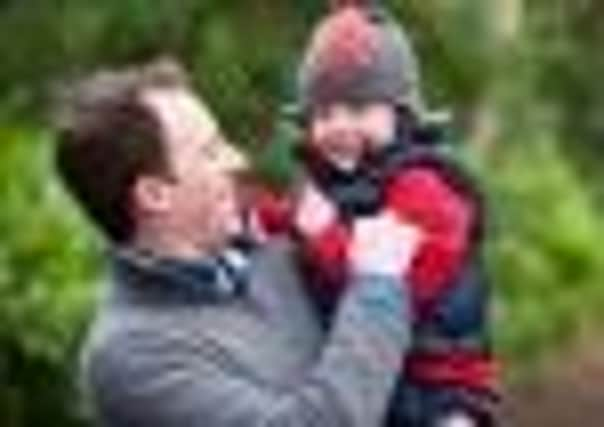Parents will give £160k raised to help tragic son beat cancer to neuroblastoma research


Little Alex Noble passed away last month at the age of four after battling against neuroblastoma – an aggressive form of cancer which affects only one in 100 children in the UK every year.
Parents Chris and Sarah Noble had launched an appeal to raise £100,000 so they could send Alex overseas for experimental treatments they hoped would clear his body of the disease.
Advertisement
Hide AdAdvertisement
Hide AdBut after a scan in July showed the cancer had returned for a second time, the couple made the heartbreaking decision to spare Alex the strain of further therapy.
Speaking to the Evening News the day after his son’s funeral last week, Chris, 36, a solicitor who lives with Sarah and their two-year-old son Luke in Blackford, paid tribute to the “happy, smiling and cheeky little boy” who was his “pride and joy”.
He said: “He could not have been braver, stronger, more determined or resilient.
“From day one of his treatment, he dumbfounded his doctors with the way he bounced back so quickly from chemo and radiotherapy. They could not believe what he was doing and they described him as incredible.”
Chris said he and Sarah were presented with a terrible dilemma when a scan in July confirmed neuroblastoma was present in their son’s adrenal gland, just above his left kidney.
The discovery came after Alex had undergone a high-dose course of chemotherapy from January to April this year – a treatment which, Chris said, left his son’s immune system “completely shot” and meant he was “highly susceptible” to infection.
Chris said: “Going through it was really our only hope of avoiding a second relapse without having to go overseas for experimental treatment.
“But when he relapsed a second time, we knew that we were in a very difficult situation.
Advertisement
Hide AdAdvertisement
Hide Ad“Although we had raised the money we would need to send him abroad, the fact the disease had returned so aggressively meant we could not accept the idea of putting his body through more treatment – his body just would not have tolerated it.
“We had many discussions with the doctors at the Sick Kids where he was being treated and we decided we were not going to put him through any more apart from oral chemotherapy for a few weeks to try and hold the disease back.” Chris said that, even as his son’s body succumbed during the weeks that followed, Alex, who was diagnosed with neuroblastoma aged only 20 months, never lost his “zest for life”.
He said: “Most of May, June and some of July with Alex was free and easy.
“He had the various tubing in his chest removed and he was as close as possible to being a normal boy. We went up north for a couple of months and went to Legoland – he loved Lego.
“He was still really active until a couple of weeks before he died, when he started to suffer quite a bit of pain and went into hospital.
“But literally 48 hours before he died, we were walking in the Meadows. It was a sunny Sunday – his last hurrah.”
Chris, who said Alex’s death had left him and Sarah feeling “empty”, also told the News that the £160,000 they had raised through their Sparkle For Alex campaign would be well spent.
He said: “Only 100 kids in the UK get neuroblastoma every year and there’s very little information to tell us what might cause it.
Advertisement
Hide AdAdvertisement
Hide Ad“What we plan to do now is fund, as far as we can, research into the disease that is going on in this country. That’s what we would like to do to help.”
He added: “I don’t know if [Alex’s] death has really hit home yet. But rather than feeling unfortunate, we feel so fortunate to have spent the four years with him that we did.”
The facts
NEUROBLASTOMA is a rare form of cancer that develops from nerve tissue and usually occurs in infants and children.
Most neuroblastomas begin in the adrenal gland, next to the spinal cord or in the chest.
The disease can spread to the bones (including the face, skull, pelvis, shoulders, arms and legs), bone marrow, liver, lymph nodes, skin and around the eyes.
The cause of neuroblastoma is still unknown and the disease is usually diagnosed in children before the age of five.